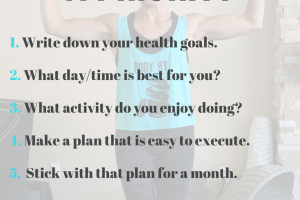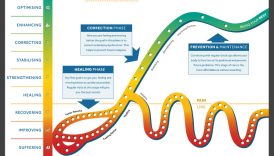Inspired Living: Making Health a Priority in Your Life

Importance of Health
Health is often considered our greatest asset. Without it, navigating daily life can become difficult, if not impossible. Maintaining good health is vital not just for longevity but also for the quality of life. A robust health foundation enables individuals to engage in activities they love, pursue their career goals, and maintain strong relationships. It’s the difference between feeling energetic and vibrant versus lethargic and unmotivated.
- Inspired Living: Making Health a Priority in Your Life
- Importance of Health
- Benefits of Prioritizing Health
- Understanding Health
- Physical Health
- Mental Health
- Setting Health Goals
- SMART Goals
- Creating a Wellness Plan
- Nutrition and Diet
- Healthy Eating Habits
- Importance of Hydration
- Exercise and Fitness
- Types of Exercise
- Incorporating Movement into Daily Routine
- Stress Management
- Identifying Stress Triggers
- Relaxation Techniques
- Quality Sleep
- Importance of Sleep
- Tips for Better Sleep
- Building a Support System
- Surrounding Yourself with Positive Influences
- Seeking Professional Help When Needed
- Mindfulness and Meditation
- Benefits of Mindfulness
- Meditation Practices for Beginners
- Time Management for Health
- Prioritizing Self-Care
- Balancing Work and Personal Life
Benefits of Prioritizing Health
When health takes center stage, numerous benefits unfold. Here are some of the most notable advantages:
- Enhanced Energy Levels: Regular exercise and a balanced diet help sustain high energy throughout the day.
- Improved Mood: Physical activity releases endorphins, often referred to as ‘feel-good’ hormones, which can alleviate stress and anxiety.
- Better Productivity: Healthy individuals tend to focus better and execute tasks efficiently.
- Stronger Immunity: Investing in health strengthens the immune system, reducing the risk of illness.
Investing in health isn’t merely a choice; it’s a commitment to enriching life.
Understanding Health
Physical Health
Physical health forms the cornerstone of overall well-being, encompassing everything from nutrition to regular exercise. It’s not just about avoiding illness; it’s about fostering a strong, resilient body capable of withstanding daily challenges. Individuals often find that when they take care of their physical health, they experience improvements across many areas of life.
- Regular Exercise: Aim for at least 150 minutes of moderate aerobic activity per week.
- Balanced Nutrition: Incorporate a variety of fruits, vegetables, whole grains, and lean proteins into meals.
- Routine Check-ups: Regular health screenings help catch potential issues early.
Mental Health
Mental health is equally critical, often intertwining with physical health. A sound mind enhances emotional well-being, boosts self-esteem, and aids in effective decision-making. Speaking from experience, investing time in mental health practices, such as journaling or therapy, can dramatically shift one’s outlook.
- Identify Stressors: Recognizing what triggers stress can empower individuals to address their challenges.
- Practice Mindfulness: Techniques like meditation can cultivate a sense of peace and clarity.
Both physical and mental health are essential, and nurturing one often enhances the other, creating a harmonious balance for overall wellness.
Setting Health Goals
SMART Goals
Setting health goals is crucial for tracking progress and maintaining motivation. One effective framework is the SMART criteria—Specific, Measurable, Achievable, Relevant, and Time-bound. For instance, instead of saying, “I want to get fit,” a SMART goal would be, “I will jog for 30 minutes, three times a week for the next month.” This clarity not only makes the goal achievable but also provides a clear path for progress.
- Specific: Clearly define what you want to achieve.
- Measurable: Attach metrics to monitor progress.
- Achievable: Ensure your goals are realistic.
- Relevant: Align your goals with your broader health objectives.
- Time-bound: Set deadlines to create urgency.
Creating a Wellness Plan
Once goals are set, it’s time to build a personalized wellness plan. This plan acts as a roadmap, guiding daily activities and choices toward achieving your health objectives. Consider including:
- Daily routines: Allocate specific times for exercise and meal prep.
- Tracking tools: Use apps or journals to log progress.
- Support strategies: Identify friends or groups who can provide encouragement.
A comprehensive wellness plan not only facilitates accountability but also transforms health goals into a structured, achievable lifestyle, paving the way for lasting change.
Nutrition and Diet
Healthy Eating Habits
Transitioning from setting goals, the next critical step is exploring nutrition and diet. Healthy eating habits form the foundation for physical and mental well-being. One effective method is the plate method, which visually divides a plate into portions of fruits, vegetables, protein, and whole grains. Here are some key tips for cultivating healthy eating habits:
- Plan Meals: Take time each week to plan nutritious meals to avoid impulse eating.
- Portion Control: Be mindful of serving sizes to prevent overeating.
- Snack Wisely: Choose healthy snacks like nuts, fruits, or yogurt to maintain energy levels.
Importance of Hydration
Equally important is hydration, often overlooked in discussions about nutrition. Staying properly hydrated can boost metabolism, aid digestion, and improve concentration. A simple rule of thumb is to aim for eight 8-ounce glasses of water a day. Consider these hydration tips:
- Carry a Water Bottle: Having water readily available encourages regular sipping.
- Infuse Water: Add fruits or herbs to make drinking water more appealing.
By establishing healthy eating habits and valuing hydration, individuals can significantly improve overall health and wellness.
Exercise and Fitness
Types of Exercise
Building on the importance of nutrition, exercise and fitness play an integral role in maintaining overall health. It’s crucial to recognize that there are various types of exercise, each offering unique benefits. They can typically be categorized into three main types:
- Aerobic Exercise: Activities like running, cycling, or swimming improve cardiovascular health and endurance.
- Strength Training: Lifting weights or doing bodyweight exercises, like push-ups, helps build muscle mass and strength.
- Flexibility Exercises: Stretching and yoga enhance flexibility, balance, and overall body awareness.
Incorporating a mix of these types can lead to a well-rounded fitness routine.
Incorporating Movement into Daily Routine
Even if structured workouts aren’t feasible, movement can be easily integrated into daily life. For example, opting for stairs instead of elevators, taking walking meetings, or even doing a short stretch break during lengthy work hours can boost activity levels. Here are some practical tips:
- Set Reminders: Use phone alerts to encourage regular movement breaks.
- Active Commute: Walk or cycle to work when possible.
- Family Activities: Plan active weekends with hiking or biking as a family.
By embracing diverse exercise types and incorporating movement into daily routines, individuals can create a sustainable, healthy lifestyle that prioritizes fitness.
Stress Management
Identifying Stress Triggers
Following the discussion on exercise and fitness, it’s essential to address stress management, a crucial component of overall health. Understanding what triggers stress is the first step toward effectively managing it. Stressors can be found in various aspects of life, such as work, relationships, or financial issues. To identify stress triggers, consider these approaches:
- Journaling: Track daily experiences and emotions to pinpoint recurring stress factors.
- Mindfulness: Practice being present; chronic stress often stems from worries about the future or regrets about the past.
- Feedback: Ask friends or family for insight into behaviors that may be contributing to your stress.
Relaxation Techniques
Once triggers are identified, it’s time to adopt relaxation techniques to counteract stress effectively. Simple methods can significantly improve emotional and physical well-being:
- Deep Breathing: Take a few moments to breathe deeply; this activates the body’s relaxation response.
- Progressive Muscle Relaxation: Tense and release each muscle group to release built-up tension.
- Meditation and Yoga: Both practices can enhance mental clarity and promote relaxation.
Implementing these strategies can help individuals create a more balanced, peaceful lifestyle, enabling them to handle life’s pressures with greater ease.
Quality Sleep
Importance of Sleep
Transitioning from stress management, another often underestimated aspect of health is the quality of sleep. Quality sleep is essential for both mental and physical well-being. It affects everything from mood regulation and cognitive function to immune response and weight management. Personally, on nights when sleep is insufficient, focus and enthusiasm plummet the next day, illustrating just how vital restorative sleep is for optimal functioning. Some key reasons sleep holds such importance:
- Memory Consolidation: Sleep helps the brain process and retain information.
- Emotional Balance: It contributes to emotional regulation, reducing irritability.
- Physical Repair: During deep sleep, the body repairs muscles and tissues.
Tips for Better Sleep
To enhance sleep quality, consider implementing the following tips:
- Create a Sleep Schedule: Go to bed and wake up at the same time every day—even on weekends.
- Limit Screen Time: Reduce exposure to screens at least an hour before bed, as blue light can disrupt melatonin production.
- Create a Relaxing Environment: Keep the bedroom dark, cool, and quiet to promote restful sleep.
By prioritizing quality sleep and implementing these strategies, individuals can significantly enhance their overall well-being and resilience against daily challenges.
Building a Support System
Surrounding Yourself with Positive Influences
Continuing from the discussion on quality sleep, building a robust support system is crucial for maintaining overall health and wellness. One of the key elements in a support system is surrounding yourself with positive influences. Positive relationships can uplift your mood, inspire you, and motivate you to achieve your health goals. Here are some ways to foster such an environment:
- Choose Supportive Friends: Spend time with people who encourage your healthy habits rather than undermine them.
- Join Groups or Classes: Engage with community groups related to your interests, whether it’s fitness, cooking, or hobbies.
- Set Boundaries: Limit time spent with negative individuals who drain your energy.
Seeking Professional Help When Needed
While a support system of friends and family is invaluable, there are times when professional help is necessary. Mental health professionals, dietitians, or personal trainers can provide tailored guidance and accountability. Consider the following when seeking professional help:
- Therapy or Counseling: Talking to a professional can offer strategies for managing stress and emotions.
- Nutritionists: They can create personalized meal plans suited to specific health goals.
- Fitness Coaches: These experts can design workout programs that align with individual abilities and aspirations.
By building a strong support system and knowing when to seek help, individuals can navigate life’s challenges more effectively, ensuring they remain on the path to a healthier lifestyle.
Mindfulness and Meditation
Benefits of Mindfulness
As we transition from building a support system, incorporating mindfulness and meditation into daily life can significantly enhance overall well-being. Mindfulness—the practice of being present and fully engaged in the moment—offers numerous benefits. It can reduce stress, improve focus, and promote emotional stability. Personally, when stress creeps in, taking time to simply notice my surroundings and breathe deeply brings a sense of calm that allows me to regain control. Key benefits of mindfulness include:
- Reduced Anxiety: Being present can diminish worries about the future.
- Enhanced Focus: Increased awareness helps sharpen concentration on tasks at hand.
- Improved Relationships: Mindfulness fosters better communication and understanding with others.
Meditation Practices for Beginners
For those new to meditation, starting can feel daunting, but there are simple practices to ease into it. Here are a few beginner-friendly techniques:
- Breath Awareness: Focus on your breath for a few minutes, noticing the inhale and exhale without judgment.
- Guided Meditations: Use apps or videos that provide step-by-step instructions to ease the process.
- Body Scan: Lie down comfortably and mentally scan your body from head to toe, noticing areas of tension and relaxation.
Incorporating mindfulness and meditation into everyday routines can create lasting benefits and foster a more balanced, peaceful state of mind.
Time Management for Health
Prioritizing Self-Care
Building on the benefits of mindfulness and meditation, effective time management is essential for maintaining health, particularly when it comes to prioritizing self-care. In our fast-paced lives, it’s easy to neglect personal well-being for the sake of productivity. However, self-care is crucial for mental and physical health long-term. To prioritize self-care, consider the following strategies:
- Schedule “Me” Time: Block out time in your calendar specifically for activities you enjoy, whether it’s reading, exercising, or relaxing with a hobby.
- Set Boundaries: Learn to say no to commitments that drain your energy or time, allowing room for your own needs.
- Create a Routine: Establish daily self-care rituals that become non-negotiable, such as morning gratitude practices or evening unwinding rituals.
Balancing Work and Personal Life
Equally important is finding balance between work and personal life. This balance can reduce stress and improve overall satisfaction. One effective approach is to set clear boundaries between work and home life. Here are some practical tips for achieving this balance:
- Establish a Work Schedule: Define specific work hours and stick to them to prevent work from bleeding into personal time.
- Disconnect After Hours: Turn off work notifications during personal time to create a mental distance from responsibilities.
- Engage in Family Activities: Scheduled family or friend time helps rejuvenate and re-establish connections.
By consciously managing time and prioritizing both self-care and work-life balance, individuals can create healthier, more fulfilling lives.





